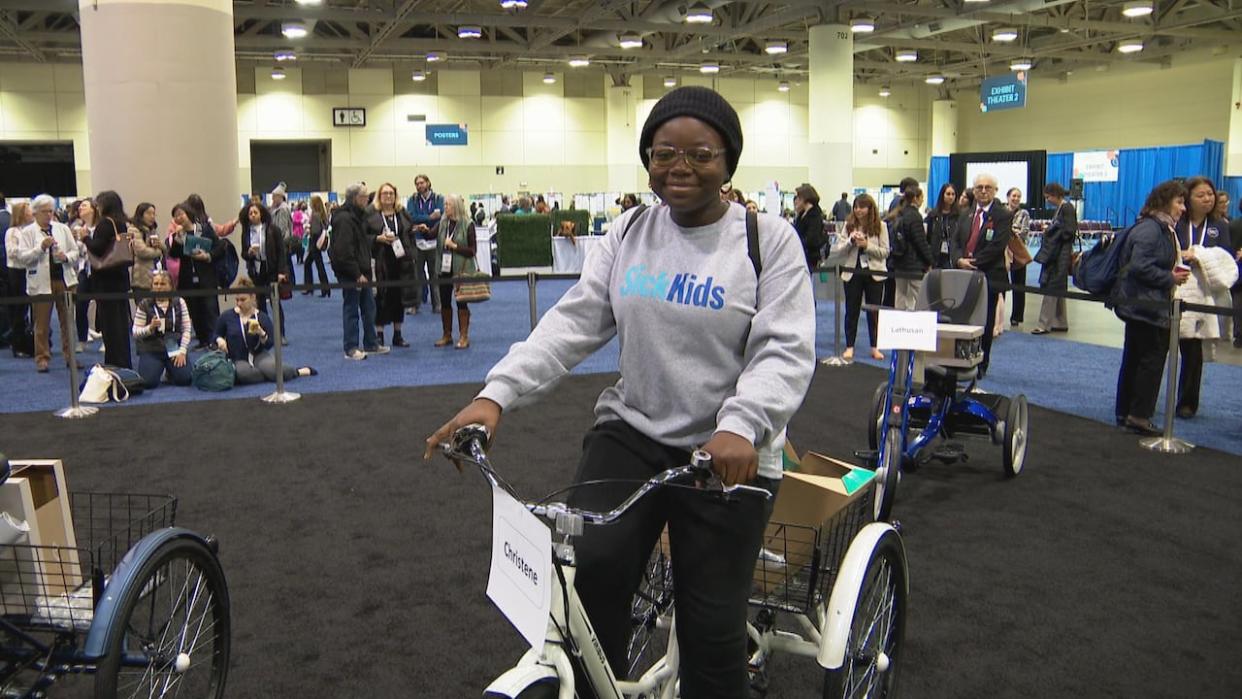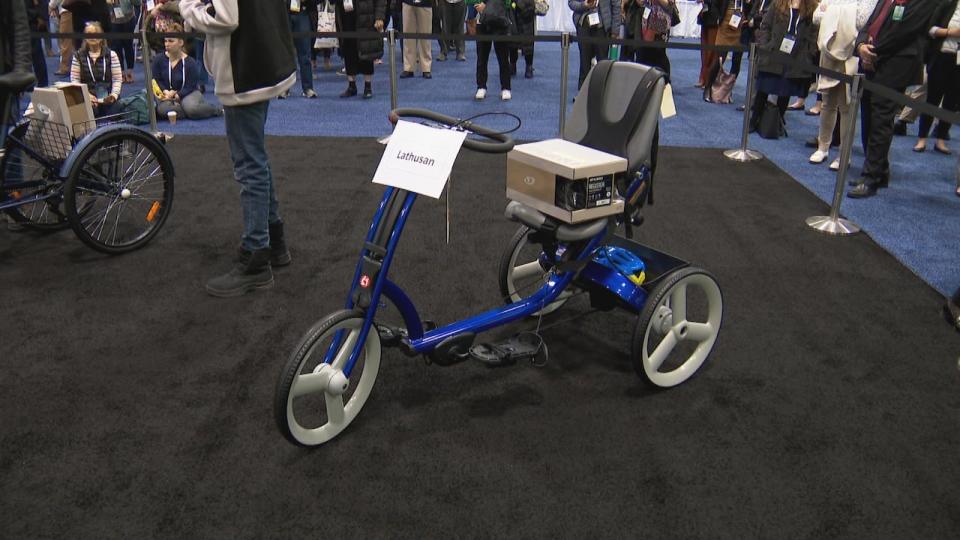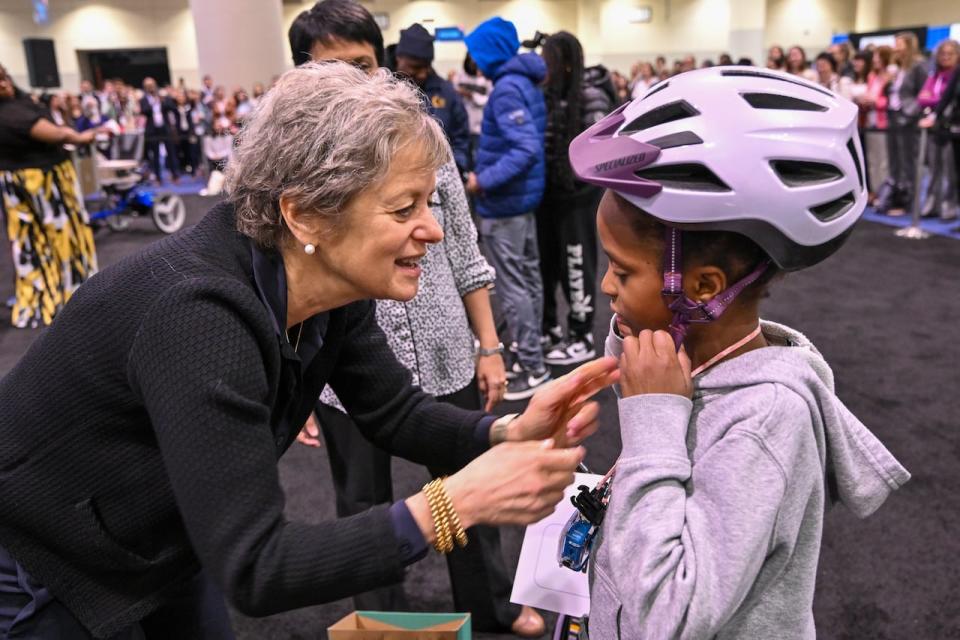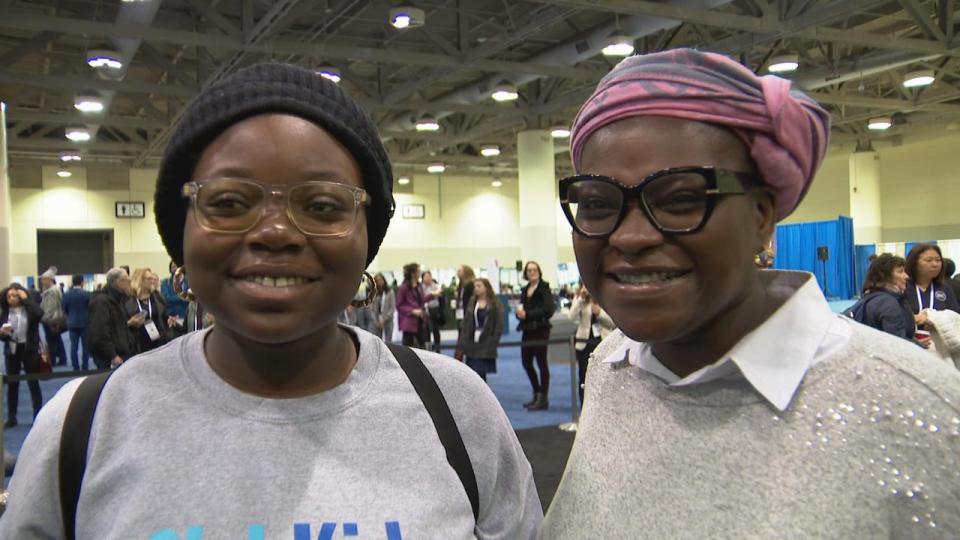Adapted bikes gifted to young people in the GTA with sickle cell disease, autism

As a baby, Christene Ntiri was diagnosed with sickle cell disease.
It's a genetic blood disorder, and although it can impact each person differently, Ntiri says it causes her immense pain in her joints.
"It's very sudden. You don't really expect it to get worse and then it does," said the 16-year-old from Brampton.
When the pain becomes too great, she ends up in the hospital. The disease has caused her to miss out on school and makes it difficult to participate in everyday activities enjoyed by her peers, like riding a bike.
That changed Friday, when Ntiri became one of 10 young people who was gifted a new, adapted bike as part of an annual Day of Caring hosted by the U.S. non-profit organization ACMG Foundation for Genetic and Genomic Medicine.

An adapted bike, complete with a personalized helmet, waits for its new owner. (Keith Burgess/CBC)
The organization promotes the work of geneticists and genetic counselors, sponsors genetics research and fosters charitable giving. The event is part of their annual clinical genetics conference, which is being held in Toronto for the first time. It takes place at the Metro Toronto Convention Centre from March 12 to 16.
The young people receiving the adapted bikes are either associated with the Sickle Cell Awareness Group of Ontario or Kerry's Place Autism Services, which chose the recipients based on who they thought would benefit most from a bicycle or tricycle.
Each bike is adapted to the person's unique abilities and strengths, and is designed to help recipients improve their strength, balance and coordination.
"Having this opportunity for the children to have access to bikes that will not only help them to get out there more, but will also allow them to be young and just enjoy and take their minds off their disease, it's just amazing," said Lanre Tunji-Ajayi, President and CEO of the Sickle Cell Awareness Group of Ontario.

Dr. Nancy Mendelsohn, president of the ACMG Foundation, helps a young girl try on her helmet before she takes home a new, adapted bike. (Event Photography of North America Corp./ACMG Foundation)
Dr. Nancy Mendelsohn, president of the ACMG Foundation, says the adapted bike giveaway is always the highlight of their annual meeting.
"To be able to give something to the patients that we care for and serve everyday is a great joy."
Deborah Ntiri, Christene's mother, says she's looked into adapted bikes before, but the cost has been too high. Christene also tried a typical bicycle as a child, but she fell off when her legs were in too much pain.
Deborah says the new adapted bike has several features that give her peace of mind.
"[It's] a tricycle, so even if she has to pause her feet, if she has pain in her ankles, she doesn't have to worry about getting her feet straight to the ground," Deborah said.
"She will use [it] when she's recovering each time she comes out from the hospital. It will give her the opportunity to remain active and live a productive life as well."

Christene Ntiri, left, and her mother, Deborah at the ACMG Foundation for Genetic and Genomic Medicine conference on Friday. (Keith Burgess/CBC)
Christene's adapted bike also has a rear basket, so she doesn't have to carry a backpack while cycling, as well as a comfortable seat.
She says she's excited to ride her bike around the entire neighbourhood and even run errands for her parents using her new set of wheels.
Although the disease is still challenging, Christene says she's excited to have a way to remain active and is thankful she was chosen for the opportunity.
"It's kind of a reminder that even though I have this illness, it won't hold me back from having some exercise and having some fun."


